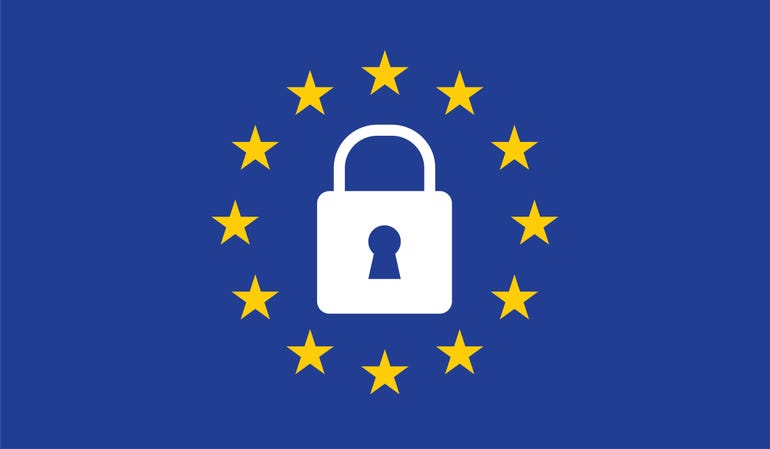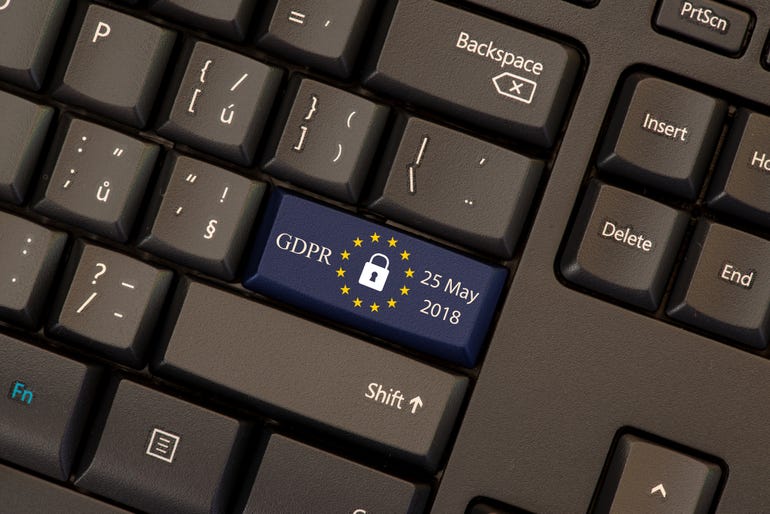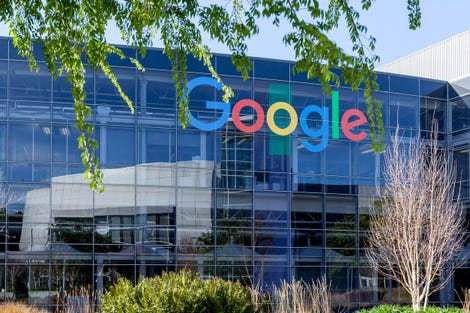Does A Title 24 Report Need To Be Registered For An Addition
What does GDPR stand up for?
GDPR stands for General Data Protection Regulation. It's the core of Europe's digital privacy legislation.
How did it come virtually?
In January 2012, the European Commission set up out plans for data protection reform across the Eu in order to brand Europe 'fit for the digital historic period'. Well-nigh four years later, understanding was reached on what that involved and how it will exist enforced.
SEE: My stolen credit menu details were used 4,500 miles away. I tried to discover out how it happened (encompass story PDF) (TechRepublic)
One of the key components of the reforms is the introduction of the Full general Information Protection Regulation (GDPR). This new EU framework applies to organisations in all fellow member-states and has implications for businesses and individuals across Europe, and beyond.
"The digital futurity of Europe tin can simply exist built on trust. With solid common standards for information protection, people can be sure they are in control of their personal data," said Andrus Ansip, vice-president for the Digital Single Market, speaking when the reforms were agreed in December 2015.
What is GDPR?
At its cadre, GDPR is a new gear up of rules designed to requite Eu citizens more control over their personal data. Information technology aims to simplify the regulatory surround for business so both citizens and businesses in the European Union tin can fully benefit from the digital economy.
The reforms are designed to reflect the globe we're living in now, and brings laws and obligations - including those effectually personal data, privacy and consent - beyond Europe up to speed for the internet-continued historic period.
Fundamentally, well-nigh every aspect of our lives revolves around data. From social media companies, to banks, retailers, and governments - nigh every service we utilize involves the collection and analysis of our personal data. Your name, address, credit carte du jour number and more all collected, analysed and, mayhap most importantly, stored past organisations.
What is GDPR compliance?
Data breaches inevitably happen. Information gets lost, stolen or otherwise released into the hands of people who were never intended to see it - and those people ofttimes have malicious intent.
Nether the terms of GDPR, not merely do organisations have to ensure that personal data is gathered legally and under strict conditions, just those who collect and manage it are obliged to protect information technology from misuse and exploitation, besides equally to respect the rights of data owners - or confront penalties for not doing so.
Who does GDPR utilize to?
GDPR applies to any system operating within the European union, equally well every bit whatsoever organisations exterior of the European union which offer goods or services to customers or businesses in the European union. That ultimately means that well-nigh every major corporation in the world needs a GDPR compliance strategy.
There are 2 different types of data-handlers the legislation applies to: 'processors' and 'controllers'. The definitions of each are laid out in Article 4 of the General Information Protection Regulation.
SEE: GDPR compliant? Here's a handy v-step grooming checklist
A controller is a "person, public authority, agency or other body which, alone or jointly with others, determines the purposes and means of processing of personal data", while the processor is a "person, public dominance, agency or other body which processes personal data on behalf of the controller". If you were subject field to the United kingdom's Data Protection Human action, for instance, you lot'll likely need to be GDPR compliant, too.
"You volition accept significantly more legal liability if you are responsible for a alienation. These obligations for processors are a new requirement under the GDPR," says the UK's Information Commissioners Role, the authorisation responsible for registering data controllers, taking action on data protection and handling concerns and mishandling data.
GDPR ultimately places legal obligations on a processor to maintain records of personal data and how it is processed, providing a much higher level of legal liability should the arrangement be breached.
Controllers are also forced to ensure that all contracts with processors are in compliance with GDPR.

General Data Protection Regulation: What does it hateful for you?
Paradigm: iStockWhat is personal data under the GDPR?
The types of data considered personal under the existing legislation include name, accost, and photos. GDPR extends the definition of personal data so that something like an IP address tin be personal data. It likewise includes sensitive personal data such as genetic data, and biometric data which could exist candy to uniquely identify an private.
When did GDPR come into force?
Following 4 years of training and debate, GDPR was canonical by the European Parliament in April 2016 and the official texts and regulation of the directive were published in all of the official languages of the EU on May 2016. The legislation came into force across the European Union on 25 May 2018.

GDPR comes into force on 25 May 2018.
Epitome: iStockWhat's the GDPR compliance borderline?
Every bit of 25 May 2018, all organisations are expected to exist compliant with GDPR.
How does Brexit impact GDPR?
The Uk is currently prepare to leave the European union on 31 Oct 2019. The UK government has said this won't impact GDPR being enforced in the country, and that GDPR will work for the benefit of the UK despite the state ceasing to be an EU member. So Brexit is unlikely to have any impact on an system'south GDPR compliance requirements.
What does GDPR hateful for businesses?
GDPR establishes one law across the continent and a unmarried set of rules which apply to companies doing business within EU member states. This ways the attain of the legislation extends further than the borders of Europe itself, as international organisations based outside the region but with activity on 'European soil' will all the same need to comply.
One of the hopes is that by slim-lining data legislation with GDPR, it tin can bring benefits to businesses. The European Committee claims that by having a single supervisor authority for the entire EU, information technology will make it simpler and cheaper for businesses to operate within the region. Indeed, the Commission claims GDPR will save €2.3 billion per year across Europe
"By unifying Europe'southward rules on data protection, lawmakers are creating a business opportunity and encouraging innovation," the Committee says.
Run into: EU General Data Protection Regulation (GDPR): A cheat canvass (TechRepublic)
What that ways, they say, is regulation guarantees information protection safeguards are built into products and services from the earliest stage of evolution, providing 'data protection by design' in new products and technologies.
Organisations are also encouraged to adopt techniques like 'pseudonymization' in gild to benefit from collecting and analysing personal data, while the privacy of their customers is protected at the same fourth dimension. (Although some groups take argued that this already comes likewise belatedly, given the number of connected devices in the world.)
What does GDPR hateful for consumers/citizens?
Considering of the sheer number of data breaches and hacks that occur, the unfortunate reality for many is that some of their data - be it an e-mail address, countersign, social security number, or confidential wellness records - has been exposed on the internet.
Ane of the major changes GDPR brings is providing consumers with a right to know when their data has been hacked. Organisations are required to notify the appropriate national bodies as presently as possible in order to ensure EU citizens can take advisable measures to prevent their data from being abused.
Consumers are besides promised easier access to their own personal data in terms of how it is candy, with organisations required to detail how they use customer information in a clear and understandable way.
Some organisations accept already moved to ensure this is the case, even if it is equally basic as sending customers emails with information on how their data is used and providing them with an opt-out if they don't effect their consent to exist a role of it. Many organisations, such equally those in the retail and marketing sectors, have contacted customers to ask if they want to be a part of their database.
In these circumstances, the customer should have an piece of cake style of opting out of their details being on a mailing list. Meanwhile, some other sectors have been warned that they have a lot more to exercise in guild to ensure GDPR compliance - peculiarly when consent is involved.
GDPR besides brings a antiseptic 'right to be forgotten' process, which provides additional rights and freedoms to people who no longer want their personal data candy to have information technology deleted, providing there's no grounds for retaining information technology.
Organisations will demand to proceed these consumer rights in mind.
Is this privacy email really from an bodily company? Could it be a scam?
Organisations of all sizes in all sectors are sent customers emails, asking them to opt-in in order to keep receiving messages and other marketing textile. For the nearly part, if the customer does desire to remain on the list, they but needed to click the part of the email that tells the company they wish to remain in touch.
However, with so many organisations sending out emails on GDPR, criminals and scammers took it up as a prime opportunity to ship out phishing emails in order to catch people unware - especially given how people were receiving more than emails from organisations than usual.
Researchers at Redscan uncovered one of these schemes, which sees criminals posing as Airbnb and claiming that the user won't exist able to accept new bookings or send messages to prospective guests until a new privacy policy is accepted. The attackers specifically mention new Eu privacy policy as the reason for the message being sent.
Withal, those behind this scheme were very much leveraging GDPR in gild to steal information, considering while the real Airbnb message didn't ask for any data, those who receive the fake message are asked for their personal information, including business relationship credentials and payment card information.
It'due south unlikely to exist the simply effort by criminals to piggyback on GDPR for their own gain.
What is a GDPR breach notification?
GDPR sets out a duty for all organisations to report certain types of information breaches which involve unauthorised access to or loss of personal data to the relevant supervisory dominance. In some cases, organisations must besides inform individuals affected by the breach.
Organisations are obliged to written report whatsoever breaches which are likely to result in a risk to the rights and freedoms of individuals and lead to discrimination, impairment to reputation, financial loss, loss of confidentiality, or any other economic or social disadvantage.

If customer data is breached by hackers, the organisation will be obliged to disembalm this.
Image: iStockIn other words, if the name, accost, data of birth, wellness records, bank details, or any private or personal data about customers is breached, the system is obliged to tell those afflicted as well as the relevant regulatory body so everything possible can be done to restrict the damage.
This needs to be done via a breach notification, which must be delivered directly to the victims. This information may non be communicated only in a printing release, on social media, or on a company website. It must be a one-to-ane correspondence with those afflicted.
Speaking in Apr 2019, the ICO looked to analyze when organisations should report a alienation and how to exercise so. "It's important organisations empathize what to await if they endure a cybersecurity breach," said ICO deputy commissioner for operations, James Dipple-Johnstone.
Under GDPR, when does an organization need to make a notification about a breach?
The breach must be reported to the relevant supervisory body inside 72 hours of the organisation beginning becoming aware of it. Meanwhile, if the alienation is serious enough to hateful customers or the public must exist notified, GDPR legislation says customers must be made responsible without 'undue filibuster.'
What are the GDPR fines and penalties for non-compliance?
Failure to comply with GDPR can result in a fine ranging from 10 million euros to four per cent of the company'south almanac global turnover, a figure which for some could mean billions.
Fines depend on the severity of the breach and on whether the company is deemed to accept taken compliance and regulations around security in a serious enough manner.
The maximum fine of 20 million euros or 4 percent of worldwide turnover - whichever is greater - is for infringements of the rights of the data subjects, unauthorised international transfer of personal data, and failure to put procedures in place for or ignoring subject admission requests for their data.
A lower fine of 10 meg euros or two per centum of worldwide turnover will be applied to companies that mishandle data in other ways. They include, but aren't limited to, failure to report a data breach, failure to build in privacy by design and ensure data protection is applied in the first stage of a projection and be compliant by appointing a data protection officer - should the system be one of those required to past GDPR.
What are the biggest GDPR fines so far?
As of May 2019, the largest GDPR fine issued and then far is €50m. The French data protection watchdog, CNIL, issued the fine to Google in January after coming to the decision that the search engine behemothic was breaking GDPR rules around transparency and having a valid legal basis when processing people's data for advertising purposes. Google is highly-seasoned the fine.
Prior to the Google fine, the largest GDPR penalisation stood at €400,000 when a Portugese hospital was fined for 'deficient' account management practices.
It'south likely that many more fines are still to come up as information protection watchdogs beyond Europe are currently investigating thousands of cases.

Equally of May 2019, Google is the recipient of the largest GDPR fine - fined €50m by the French data protection watchdog in January 2019.
iStockPhoto / Getty ImagesWhat's in a GDPR-compliant alienation notification?
In the result of a company losing data, be it as a result of a cyberattack, man error or anything else, the company is obliged to deliver a breach notification.
This must include approximate data nearly the breach, including the categories of data and number of individuals compromised as a result of the incident, and the categories and approximate numbers of personal data records concerned. The latter takes into account how at that place can be multiple sets of information relating to just a single private.
Organisations likewise need to provide a clarification of the potential consequences of the data breach, such equally theft of money, or identity fraud, and a description of the measures that are being taken to bargain with the data alienation and to counter whatsoever negative impacts which might exist faced by individuals.
The contact details of the data protection officer, or main point of contact dealing with the breach, will too need to be provided.
Do we need to appoint a Data Protection Officer?
Under the terms of GDPR, an organization must appoint a Data Protection Officeholder (DPO) if it carries out large-scale processing of special categories of data, carries out large scale monitoring of individuals such as behaviour tracking or is a public dominance.
In the case of public regime, a unmarried DPO can be appointed across a group of organisations. While it isn't mandatory for organisations outside of those above to engage a DPO, all organisations need to ensure they take the skills and staff necessary to be compliant with GDPR legislation.
SEE: GDPR proves that tech giants can be tamed
There'southward no fix criteria on who should exist a DPO or what qualifications they should have, but according to the Information Commissioner'southward Office, they should take professional experience and data protection law proportionate to what the organisation carries out.
Failure to engage a data protection officer, if required to do and then by GDPR, could count as non-compliance and result in a fine.
What does GDPR compliance look like?
GDPR might seem complex, simply the truth of the matter is that for the near function, the legislation is consolidating principles which currently form role of the UK'south Data Protection Human action.
However, there are elements of GDPR such every bit breach notification and ensuring that someone is responsible for information protection which organisations demand to address, or run the risk of a fine.
In that location's no 'one size fits all' approach to preparing for GDPR. Rather, each business needs to know what exactly needs to be achieved to comply and who is the data controller who has taken responsibility for ensuring it happens.
"Yous are expected to put into place comprehensive just proportionate governance measures," says the United kingdom's ICO. "Ultimately, these measures should minimise the risk of breaches and uphold the protection of personal data. Practically, this is likely to mean more policies and procedures for organisations, although many organisations will already accept good governance measures in place."
SEE: Will GDPR really protect European union citizens? 61% of infosec pros say aye (TechRepublic)
That could be the responsibility of an individual in a minor business, or even a whole department in a multinational corporation. Either mode, budgets, systems and personnel volition all need to be considered to make it work.
Under the GDPR provisions that promote accountability and governance, companies need to implement appropriate technical and organisational measures. These could include information protection provisions (staff training, internal audits of processing activities, and reviews of Hour policies), besides as keeping documentation on processing activities. Other tactics that organisations can look at include data minimisation and pseudonymisation, or allowing individuals to monitor processing, the ICO said.
In preparing for GDPR, bodies such equally the ICO offered general guidance on what should exist considered. All organisations need to ensure they've carried out all the necessary impact assessments are and GDPR compliant, or chance falling foul of the new directives.
GDPR is here, so what now?
Every bit of May 25th 2018, GDPR has come into force, with the days and weeks prior to it seeing a surge in companies sending emails to customers asking them to opt-in to new privacy and consent policies. Emails came so thick and fast in the get-go 24 hours that many web users felt overwhelmed.
In the run up to the date, some organisations and platforms, including social media site-scoring site Klout only shut downwards operations - Klout didn't explicitly point to GDPR, just the appointment of May 25th probably isn't a coincidence. It isn't the just service to shut down operations or restrict admission to European users.
European users who visited loftier-profile U.s.a. news websites such as The LA Times, The Chicago Times and The Baltimore Sun on the morning of May 25th found that they weren't able to access the websites, with the publishers pointing to GDPR as the reason.
"Unfortunately, our website is currently unavailable in almost European countries. We are engaged on the effect and are commited to looking at options that support our full range of digital offerings in the EU marketplace," said a statement on the Chicago Tribune website.
Similar statements were posted across news publications operated by the Lee Enterprises and Tronc groups - and a year on many of these publications notwithstanding display the aforementioned message to European users who try to visit the sites.
Denying users admission to products - at least for the fourth dimension being - is viewed by many as a price worth paying to avert potential fines. Although some would inquire the the question, what were they doing with user data and what consent did they have?
What has GDPR changed since it was introduced?Equally of May 2019, many of those issues with US publishers however oasis't been resolved, with the likes of Tronc still displaying the same apology to users in Europe.
Publishers aren't the only organisations that are having to come to terms with the new reality every bit some of the largest technology companies including Facebook say they've started to feel the bite of GDPR. The social network has blamed GDPR for a turn down of almost a meg monthly users during the second quarter of the twelvemonth, also as a dip in advert acquirement growth within Europe.
Organisations of all sizes have institute themselves affected past it to some extent. Analysts at Forrester say many companies have reported a decrease of between 25% and forty% of their addressable market for emails and other forms of contact.
Equally a issue, many companies find themselves having to think about new methods of attracting consumers and generating revenue. Analyst Gartner has suggested that some companies may take to rethink their data middle strategy every bit a result of legislation such as GDPR.
In the yr since GDPR was introduced, some of the world's largest technology firms have attempted to re-position their products equally privacy-focused - a strategy that has probable come about in some part due to increased sensation around privacy and consent.
Apple tree CEO Tim Melt has chosen for the Usa to introduce an equivalent to GDPR to forbid data existence weaponised against users. Meanwhile, Facebook CEO Mark Zuckerberg recently spoke almost how privacy will exist the future of Facebook – even though he admits himself that some may observe that difficult to believe.
What comes adjacent for GDPR and data protection?
Countries and regions around the world announced to be taking cues from GDPR past introducing or modifying data protection legislation. Countries which accept signalled they'll change their privacy laws since the introduction of GDPR include Brazil, Japan, Republic of korea, Bharat and others.
Silicon Valley, California, is likewise set to introduce its ain information privacy laws in the California Consumer Privacy Act, which comes into force as of 1st January 2020.
The legislation follows in the footsteps of GDPR past assuasive individuals to take a greater say about how their personal data is used, but in many ways it doesn't get nearly as far: there's no set fourth dimension-limit for notifying consumers virtually a breach and organisations won't face up fines for non-compliance.
Withal, the introduction of this legislation into the oestrus of the engineering industry appears to suggest that privacy and consent are bug that could modify how Silicon Valley operates.
Previous and related coverage
Information technology leader's guide to the threat of cyberwarfare (Tech Pro Research)
From security and mobiles to Windows and shadow It.
Vendor Security Alliance tweaks auditing system to be GDPR compliant
The not-turn a profit brotherhood has added GDPR compliance to its yearly vendor auditing system and announced it volition be taking on new members for the kickoff time.
How Europe'south GDPR will affect Australian organisations
Failure to comply with the information protection regulations could result in a €20 million fine, and Australian organisations with links to Europe will non be exempt.
READ MORE ON CYBERSECURITY
- Every bit EU'due south Full general Data Protection Regulation (GDPR) looms, tech vendors fix pitches
- How the GDPR will brand consumers king of their data (TechRepublic)
- Cybersecurity and Brexit: What does it hateful for the fight against hackers?
- Eu commissioner: We shouldn't serve tech, tech should serve us (CNET)
- Equifax lesson: It's time for tougher rules, regulations, fines to combat breaches
Source: https://www.zdnet.com/article/gdpr-an-executive-guide-to-what-you-need-to-know/
Posted by: moranineved85.blogspot.com


0 Response to "Does A Title 24 Report Need To Be Registered For An Addition"
Post a Comment